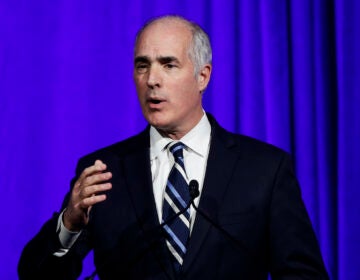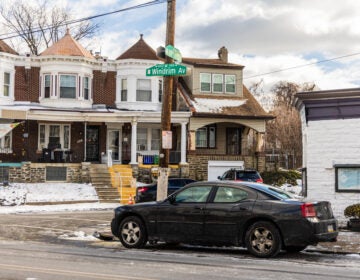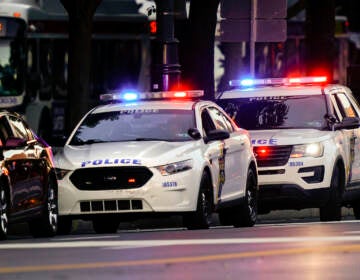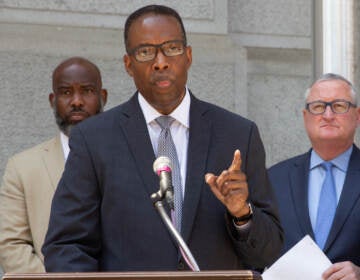City officials, counselors, discuss police response to mental health crises, people with disabilities
Following the death of Walter Wallace Jr. in October, Philadelphia city councilmembers heard testimony on best practices for police response and crisis intervention.
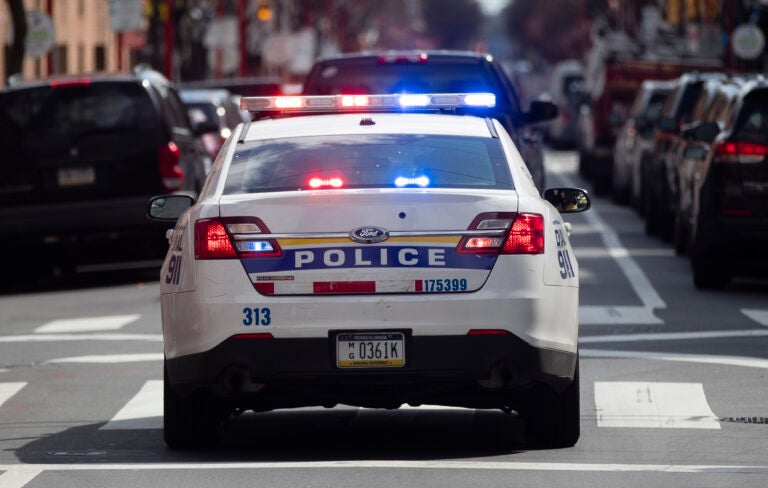
A Philadelphia Police Department cruiser is pictured in this file photo. (AP Photo/Matt Rourke)
Philadelphia city councilmembers, law enforcement, mental health professionals and community members spoke for more than four hours on Wednesday about how to improve police response to mental health crises.
The city council’s Committee on Public Health & Human Services and their Public Safety Committee held the virtual public hearing to listen to testimony addressing the intersection of mental health, disability, police encounters, and best practices for de-escalation and non-lethal crisis intervention.
The meeting comes two months after the fatal shooting of Walter Wallace Jr. in Philadelphia, following a 911 call. Wallace’s family said the 27-year-old father suffered from mental health issues, and that the police did not properly respond to the crisis.
During Wednesday’s meeting, officials discussed the importance of crisis intervention training and other strategies needed to prepare officers to respond to these kinds of incidents.
Much of the conversation revolved around Philadelphia’s proposal to expand its 911 service, which would create a triage desk to determine the best resources for the situation at hand. Behavioral health specialists could also be on hand to advise on calls or respond to situations alongside or before police arrive.
“This is not new, this is a problem the entire country faces and has for a while. A quarter to a half of people shot by police are people with mental illness,” said Philly-based psychiatrist Dr. Ken Certa.
“Walter Wallace’s death is going to reinforce to families not to call 911 when their family is in danger, and that worries me a lot,” he added.
Police Commissioner Danielle Outlaw also spoke during the meeting. She discussed the various response strategies being contemplated by law enforcement and the public, such as a community response, a co-response between the police and mental health professionals, or a system in which police respond after the mental health professional.
Philadelphia currently has a co-responder pilot in place. Some officials would like to have all those options available to people who call 911 based on a triage process.
“Since we already have the co-responder pilot in place, let’s see what the pilot shows us … that would inform the direction the city goes in,” Outlaw said.
The stakeholders also discussed the need for increased mobile crisis units, which respond to individuals who are experiencing mental health issues.
In addition to advice suggested by mental health and law enforcement professionals, members of the public shared their personal experiences with police officers.
Cecelia Thompson talked about her son, who is on the autism spectrum, and her concern about what might happen if he or other individuals with autism encounter the police. Thompson, who is Black, said while Black police officers typically know how to handle her son, she fears what will happen when a white officer sees a “200-pound man having a breakdown.”
Shawn Aleong said he wants police officers to do mandatory community service with a disability organization, so they know how to handle a person with an intellectual disability.
“Being Black and disabled should not be a death sentence,” he said. “We cannot call this the City of Brotherly Love … if we do not have compassion for those who want to be included in society.”
A Philadelphia mother spoke about her son’s mental health crisis. When the police officer arrived at her home, she said, his first instinct was to pull out a taser. Fortunately, she and her sister were able to de-escalate the problem.
“My concern was that they weren’t trained in crisis intervention and that they weren’t able to pick up that he was having a mental health crisis,” she said. “When the officers were being aggressive, it made him more aggressive. Maybe they should send paramedics first and have officers come as a back-up.”

Get daily updates from WHYY News!
WHYY is your source for fact-based, in-depth journalism and information. As a nonprofit organization, we rely on financial support from readers like you. Please give today.



